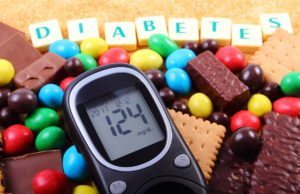Do You Know the Signs of Hypoglycemia?
People with diabetes sometimes experience hypoglycemia (also called low blood sugar or low blood glucose) because of treatments for diabetes. In general, when a person’s blood sugar levels drop below 70 mg/dl, they become hypoglycemic and need immediate assistance to bring blood sugar levels back to a normal range of between 70 and 110 mg/dl. (Check with your senior parent’s doctor for their target level as they can vary.)
The symptoms for hypoglycemia can vary, so it’s important that you and your parent’s home health care providers become familiar with their particular symptoms. The best way to determine if your parent is experiencing hypoglycemia is to check their blood sugar level. Some of the symptoms of hypoglycemia are:

Home Health Care Darby PA – Do You Know the Signs of Hypoglycemia?
- Feeling shaky.
- Anxiousness.
- Hunger.
- Heart palpitations.
- Being irritable.
- Feeling tired.
- Looking pale.
- Sweating.
- A tingly feeling around the lips.
- Calling out while sleeping.
- Confusion.
- Nausea.
- Headaches.
- Seizures.
- Blurry vision.
What Causes Hypoglycemia?
Hypoglycemia is often a side effect of medications taken for diabetes, such as insulin or medications that help the body to produce insulin. Make sure you ask your parent’s doctor or pharmacist if the medications they are on can cause hypoglycemia. Other things that can cause hypoglycemia are:
- Too Few Carbs: The body needs carbohydrates to convert into glucose, which fuels the body. If your parent does not eat enough carbs, their medication may cause their blood glucose levels to fall too low.
- Increased Activity: When your parent is more physically active than usual, it can cause their blood glucose levels to be lower for up to a day following the increased activity.
- A Skipped or Late Meal: Not eating or not eating often enough can make blood sugar levels dip.
- Illness: When your parent is ill, they may eat less or may vomit, which can affect blood sugar levels.
- Alcohol: Alcohol consumption, especially without food, makes it harder for the body to maintain a blood sugar levels.
How Can a Home Health Care Provider Help When Hypoglycemia Strikes?
If your parent displays symptoms of hypoglycemia, a home health care provider can help by having them test their blood sugar levels. If the level has fallen too low, a home health care provider can assist them with bringing levels back up. The American Diabetes Association recommends the following method:
- Have the person eat 15 – 20 grams of simple carbohydrates or glucose.
- Wait 15 minutes and check levels again.
- Repeat the first two steps if the level has not returned to the normal range.
- Once levels return to normal, if the next meal or snack is not scheduled for an hour or more, the person should eat a small snack.
Watching for symptoms of hypoglycemia is important because it can lead to a seizure or coma if it is not treated. A home health care provider who checks on your parent daily can ease your worries about your parent’s health and safety while you are at work or attending to other responsibilities. A home health care provider can get your parent the help they need if hypoglycemia should occur and keep you up to date on their health.
If you or an aging loved one are considering Home Health Care Services in Darby PA, please contact the caring staff at True Direct Home Health Care today.
- How Home Health Providers Offer Education Amidst Physical Health Changes - March 5, 2024
- Spring Activities for Seniors - February 21, 2024
- How to Help an Older Loved One with Cataracts? - February 6, 2024
